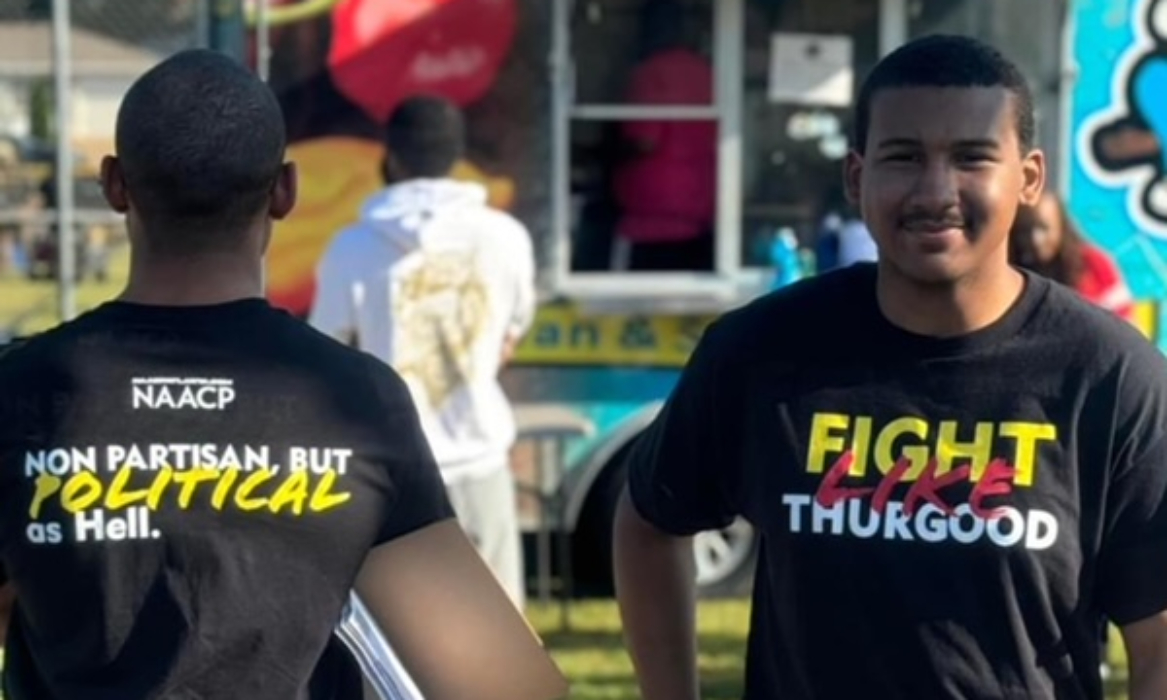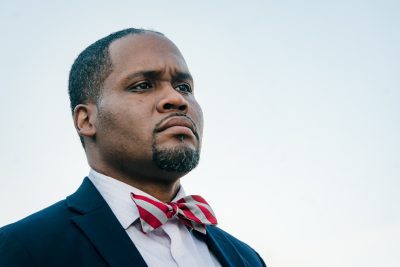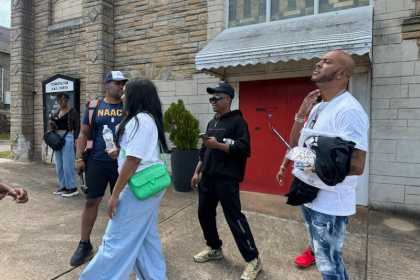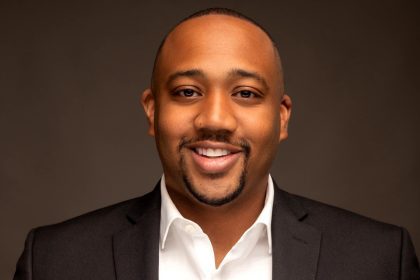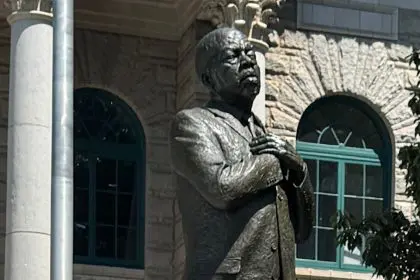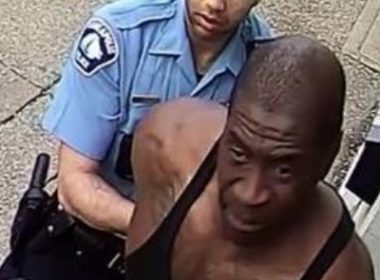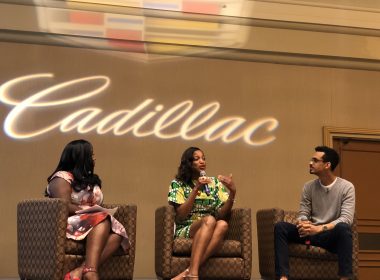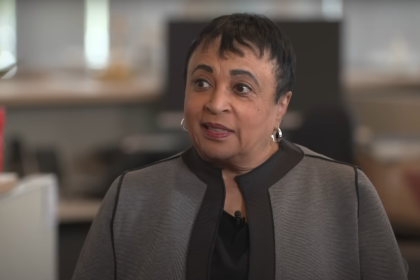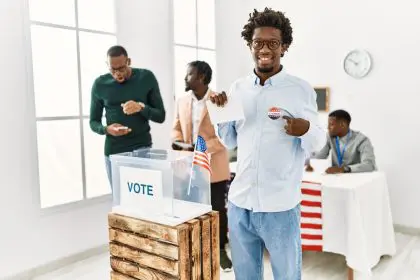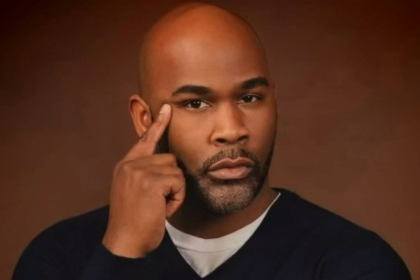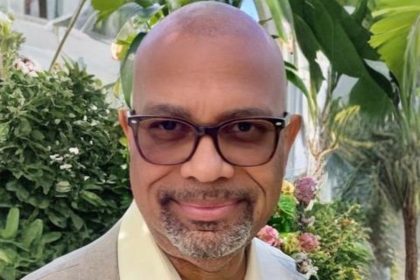Gerald A. Griggs is an Atlanta attorney who was elected the 13th president of the State Conference of the Georgia NAACP by an overwhelming margin. Sixteen months later, he became the president of the Atlanta NAACP. He is the author of the following editorial.
–the editors
As we approach one of the most crucial elections in Georgia’s history, voter suppression efforts, election interference, and conspiracy theories are threatening the democratic process. The Georgia State Election Board, tasked with overseeing free and fair elections, has instead introduced illegal rules that jeopardize the voting rights of many citizens. In the face of these challenges, Georgia voter groups, civil rights organizations, and community activists have devised a comprehensive three-part strategy to mobilize voters, protect the electoral process, and counter these anti-democratic forces.
This plan includes initiatives such as “Parties to the Polls” to register voters, civic engagement events like “Yelle for the Culture,” bus tours to college campuses, and door-to-door canvassing in underrepresented communities. These efforts are combined with a proactive litigation strategy to stop illegal voter challenges and decertification schemes. With Georgia as a key battleground in the upcoming election, the next 50 days will be a sprint to the finish as these groups fight to protect democracy.
The threats to Georgia’s democracy
Voter suppression has long been a contentious issue in Georgia, and recent actions by the Georgia State Election Board have exacerbated this problem. By implementing illegal rules, the board has created new barriers to voting, disproportionately affecting communities of color, low-income voters, and other marginalized groups. These barriers take many forms, from overly restrictive voter ID laws and purging of voter rolls to limiting early voting and implementing unnecessary restrictions on absentee ballots.
Adding to this is the rise of conspiracy theories surrounding Georgia’s elections. Since 2020, false claims about widespread voter fraud have taken root, leading to baseless accusations and attempts to undermine public trust in the electoral system. These conspiracy theories, perpetuated by certain political actors, have fueled efforts to challenge valid votes and contest election outcomes through frivolous litigation and illegal decertification schemes.
The culmination of these factors poses a direct threat to Georgia’s democracy. Civil rights groups, voter organizations, and community activists have been working tirelessly to counter these efforts, recognizing that the stakes in this election are higher than ever.<
A three-part plan to mobilize the vote
In response to these unprecedented challenges, Georgia voter groups have developed a multifaceted plan aimed at increasing voter turnout, raising awareness about the importance of civic engagement, and legally challenging voter suppression tactics. This plan can be broken down into three key areas: voter registration and engagement, community outreach, and legal action.
1. Voter registration and engagement with “Parties to the polls”: One of the most important components of this strategy is the effort to register as many eligible voters as possible before the election. The “Parties to the Polls” initiative seeks to make voter registration not only accessible but also exciting and engaging, particularly for younger voters and communities that have been historically disenfranchised. Through block parties, festivals, and culturally relevant events like “Yelle for the Culture,” these organizations are reaching out to voters where they live, work and socialize.
“Yelle for the Culture” specifically targets younger voters, bringing together music, art, and political education to inspire civic engagement. By integrating entertainment with activism, this event is designed to demystify the voting process and encourage young people to register and participate in the democratic process.
Additionally, these events will provide on-the-spot voter registration, information on how to navigate new voting laws, and resources for voters who may face difficulties on Election Day. The goal is to ensure that every eligible voter is registered, informed and ready to cast their ballot.
2. Community outreach through bus tours and canvassing: Recognizing that certain communities — particularly those in rural and underrepresented areas — are often overlooked in traditional voter outreach efforts, Georgia voter groups have launched a series of bus tours and canvassing efforts aimed at mobilizing these voters.
Bus tours to college campuses are a key part of this initiative, as young voters are often the target of voter suppression tactics. Many students face challenges such as confusion over voting districts, ID requirements, and absentee ballot processes. These bus tours will not only provide transportation to polling places but also offer critical information about how to navigate these barriers.
Latino, and immigrant neighborhoods that are often the most impacted by voter suppression laws. Door-to-door canvassing will help ensure that voters in these areas are not only registered but also aware of their rights and the steps they need to take to vote safely and securely.
3. Proactive litigation strategies: The final component of this three-part plan is a proactive legal strategy designed to combat voter challenges and illegal decertification schemes. Civil rights groups are on the front lines of this battle, filing lawsuits to block illegal actions by the Georgia State Election Board and other entities attempting to undermine the election.
These lawsuits are focused on stopping illegal voter purges, challenging discriminatory rules that disproportionately affect marginalized voters, and preventing the illegal decertification of legitimate election results. Civil rights attorneys and voting rights advocates are working in real-time to ensure that every legal avenue is pursued to protect the integrity of the election.
In addition to litigation, these groups are coordinating with election protection teams to provide legal assistance to voters who encounter problems at the polls. These teams will be stationed at polling places throughout the state to offer immediate help to voters facing challenges, intimidation, or other issues designed to suppress their vote.
A sprint to the finish in the next 50 days
With only 50 days remaining until Election Day, Georgia is in the spotlight. The state has become a focal point for voter-suppression efforts and election interference, but it is also a battleground where civil rights groups and voter advocates are fighting back with renewed energy and determination. The stakes could not be higher.
The three-part plan to mobilize the vote — through voter registration and engagement, community outreach, and proactive litigation — is a critical step in ensuring that democracy prevails in Georgia. Over the next few weeks, these efforts will continue to ramp up as voter groups race to register, engage, and protect as many voters as possible.
The future of Georgia’s democracy depends on it.

